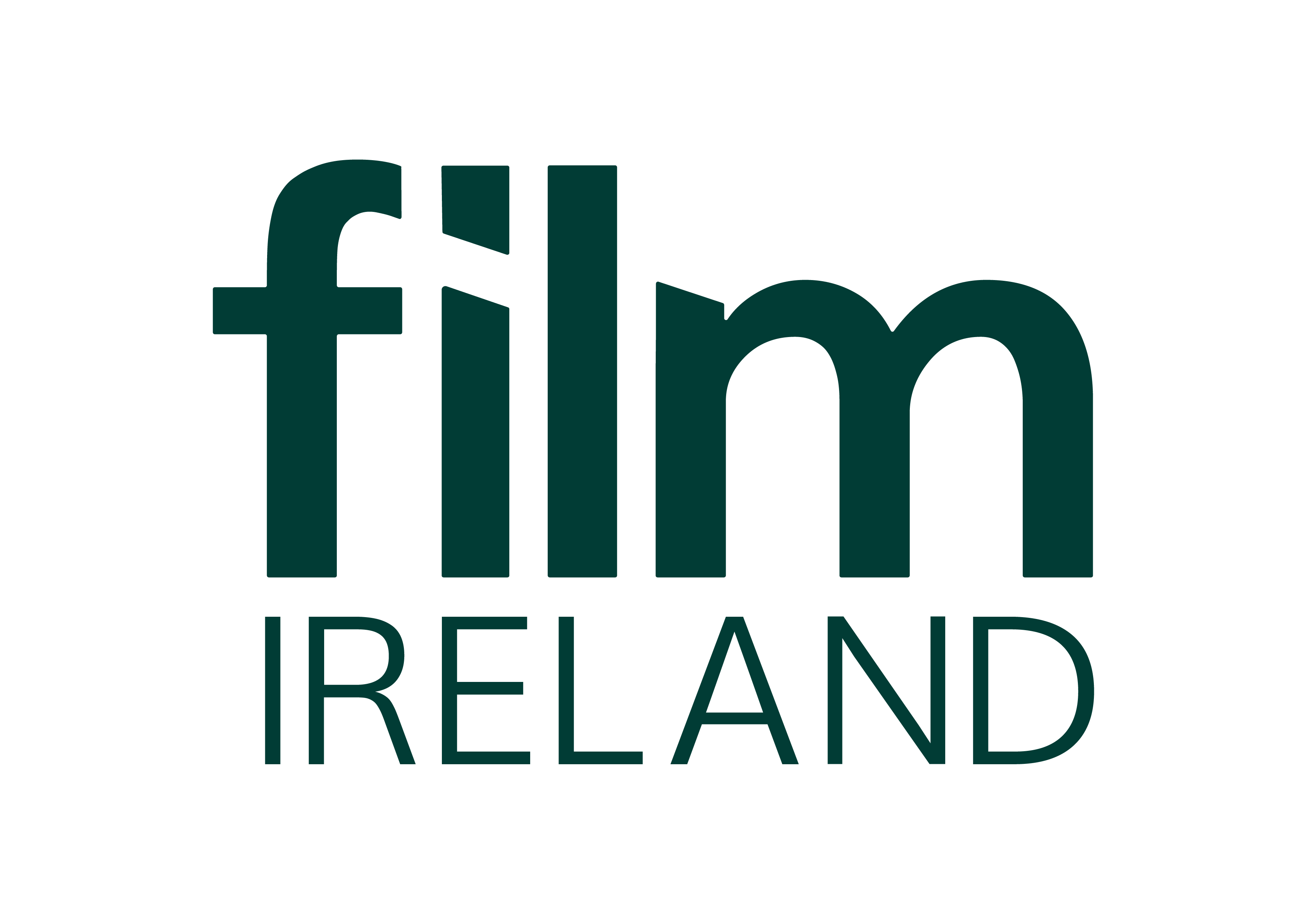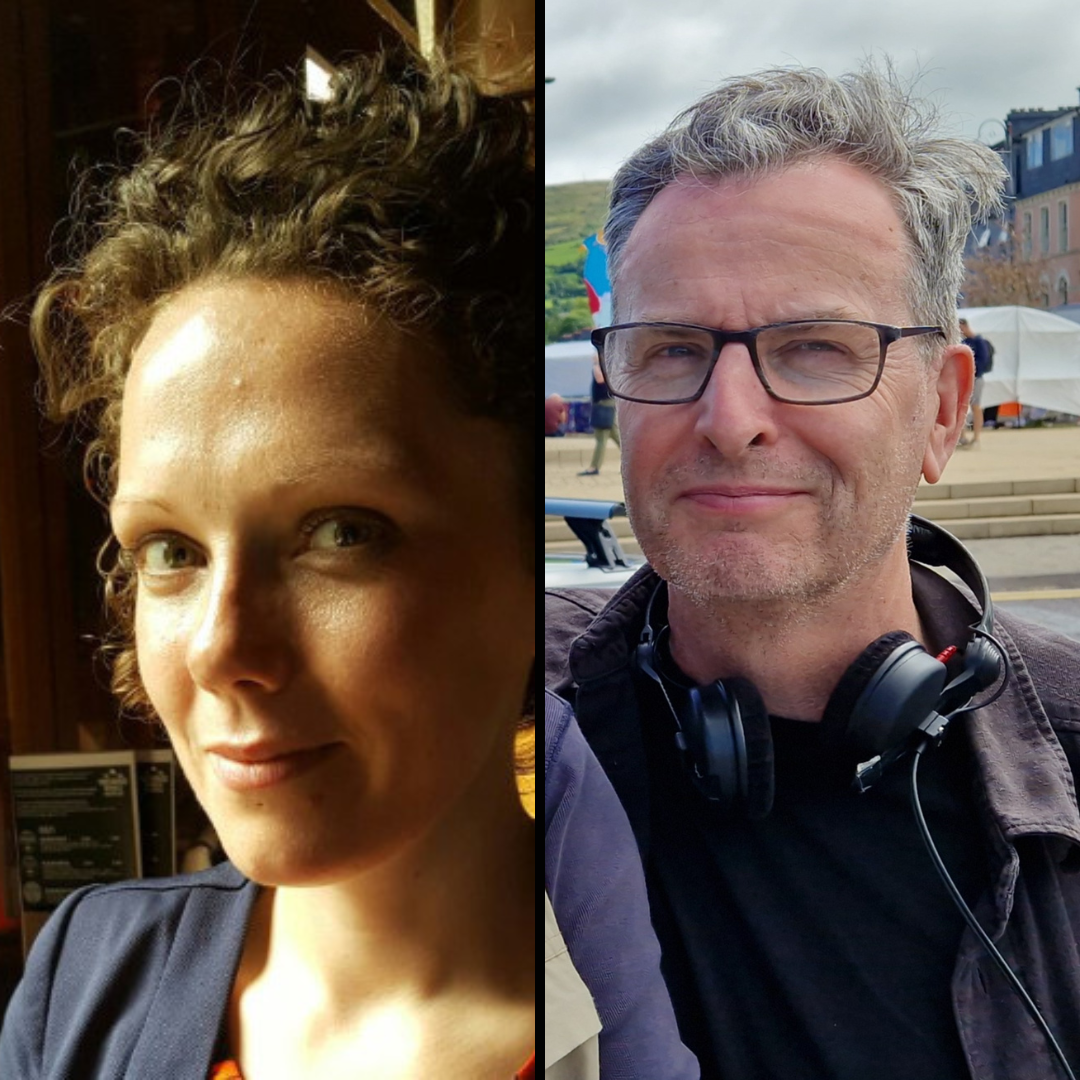Jules Ní Chonchobhair, head of MEDIA Office Galway, has been working behind the scenes to bring Documentary: A European Perspective to Galway this October. The one-day event will feature panels with leading European commissioning editors, live pitches from Irish filmmakers, and one-to-one meetings designed to spark international collaborations. We caught up with her to ask a few questions about the event. We also spoke with Adrian McCarthy, from Curious Dog Films, director of Whiddy, who was successful in pitching at the 2023 event with his feature documentary on the Whiddy Island disaster.
Jules, can you tell us about the work Creative Europe does?
J: Creative Europe MEDIA supports the European TV, film, video gaming and immersive content sectors. Funding is available to develop new projects, grow audiences for European content and to support skills and talent development. The MEDIA desks in each country are funded by the European Commission and provide free support to companies looking to apply for European funding, advising them on the best funding to apply for, giving feedback on their applications and supporting them along the process. In Ireland, we’re quite lucky to have additional supports to our MEDIA desks from Screen Ireland, Coimisiún na Meán, Ardán, RTÉ, TG4, and Údarás na Gaeltachta. This allows us to respond to the specific needs of the companies and organisations in our region and run events that support the industry and those working in it.
Can you tell us a bit more about what to expect on the pitch?
J: We ask for a maximum of three pages in the application itself. The applications are open to different levels of experience, though it should be of a high standard with international appeal. Like any pitching event, applicants also need to have a very strong pitch ready. This is a chance for producers and directors to show off their project to several broadcasters. They need to know their project well and be ready to sell it.
Adrian, you’ve been through the process. How was it for you?
A: It was great to get selected for it, and a big shout out to Eibhlín Ní Mhunghaile, the former head of MEDIA Galway, and her team for making it happen. At that stage, I had been working on Whiddy for about three years, and had initial development funding in place from Screen Ireland and RTÉ. The event gave me the opportunity to pitch to other funders in a way that wasn’t as daunting as a big film festival. There was a great group of commissioning editors, a nice variety from Storyville, Arte, SVT, TG4 and RTÉ . It was also an education to observe the other teams and their projects.
Having to pitch like this is an interesting thing to do as a producer or director, as it forces you to really think about your story in a certain way. I think it’s really valuable for the development of your project. The one-to-one meetings were a great follow on with the broadcasters reacting to what they had seen and heard. If they liked what they saw it allowed for more focussed discussions about story, approach, funding etc.
When I met with Arte’s commissioning editor, he really liked the story and the French connection to it. On the back of that, conversation flourished pretty quickly. We had approached a different wing of Arte previously and had been unsuccessful, so it was because of pitching at this event that we got them on board. Within the next year, we applied to Coimisiún na Meán, and were turned down, but we were successful second time around. I guess that tells its own story – if you don’t succeed at first, keep going and you’ll hopefully get there in the end.
So you’d recommend applying, then?
A: Definitely apply for it if you have a documentary project at a solid stage of development or early production. Looking at others who were in the room with me that day, there was a lot of documentary talent and it was a great opportunity to chat to other filmmakers. I would highly recommend it. It was really valuable, and I got far more out of it than I expected to.
Jules, any final advice to those pitching?
J: Remember that with any kind of film, we’re telling stories. Get ready to tell your story and show our panel of commissioning editors why your story matters. Know your story, and know your audience. This will help you speak to the commissioning editors.
Be prepared. It’s really important to practise your pitch. You have eight minutes to capture the attention of the commissioning editors. Make every word count. It’s okay to make it shorter than the allotted time, but don’t make it too long.
Choose your visual content wisely. The images and videos that you share should give a visual representation of the story that you’re narrating on stage.
Speaking of stage, it can be a bit daunting to pitch live on stage with an audience and a panel of commisioning editors. Even those very experienced with pitching may not have had a live audience before. Practise out loud, and time yourself. Know your script – and it’s okay to bring notes!
How about you, Adrian?
A: It was nerve-racking to pitch. Most of the projects selected pitched as a double act with a producer and director, and I ended up doing it by myself. There’s a fair bit of pressure standing in front of a room full of people, with commissioning editors in the front row, and your peers and observers also in the room. It’s a good thing, though, to step out of your comfort zone and pitch in that way. If you’re passionate and care about your project (as everybody was) and know the story you want to tell, then it’s a hugely valuable thing to do. And, you must be open to taking the positive and negative feedback on board, as it’s a rare opportunity to get people’s honest reactions like that.
What’s the best way to prepare?
A: Just prep your pitch! It’s funny, I got the train from Dublin, and I just worked it and worked it all the way to Galway. I kept reading it over and over and tweaking. I felt like John Cleese in the film Clockwise. And it just kind of landed. I think if you have the passion for your story, that will go a long way in bringing others on board. A lot of the time commissioning editors are getting written treatments, synopses and proposals but with a pitching event, they hear it direct from the mouths of directors and producers. They hear it and feel it. It’s also about building relationships and chatting to people – not to be undervalued. So, I put in as much work as I could. I also had a personal connection to the story, through my father, and that seemed to resonate with people during the pitch, which surprised me.
Are there particular types of documentaries (e.g. feature-length, series, shorts) or thematic areas that commissioning editors are especially interested in? Or ones that have done well in the past?
J: The focus has been on feature documentary, but there’s been a broad range of themes. As in previous years, we’ll have several broadcasters, each with their own area of interest. In the past we’ve had RTÉ, TG4, BBC, Netflix, Arte and SVT. We’ll confirm the final list of this year’s broadcasters in the coming weeks, but we expect a broad range as in the two previous editions of the event. Really, we’re interested in Irish documentary across a range of themes.
Adrian, what was your experience?
A:Whiddy is a complicated story in many ways. It was clear from some commissioning editors that they had no interest in another disaster story, so that was useful to hear and take away. They did see, though, that there was a big story to tell about the impact of the international oil business coming to a small rural community in the south west of Ireland – with similarities to Local Hero. It’s a positive story to begin with as it brings huge employment and a local boom, but then the oil spills and the eventual disaster, ten years later. I got some really interesting feedback with regards what people felt were the strengths and most interesting parts of the story. And, here we are today, nearly two years later and Whiddy is in post-production (working with wonderful editor Brenda Morrissey and producer Maria Horgan) and we’re looking forward to bringing the story into the world in 2026. Thanks to the MEDIA team for creating the pitching event, which helped get the project off the ground.
Will filmmakers who pitch receive structured feedback from the commissioning editors, either during or after the event?
J: Those who pitch will have a networking lunch with the commissioning editors, and they will also have one-to-one meetings with each of the commissioning editors. This will give them the opportunity to see if there’s interest from those broadcasters and to get advice on their film.
For observers attending the morning panel and pitches, will there be networking opportunities or chances to engage with commissioners and filmmakers informally?
J: There’ll be informal networking opportunities for observers during short breaks. Many observers are working in the documentary film industry and have projects underway. They’ll get to hear directly from commissioning editors what they’re looking for. Much of the time in this industry, people are siloed away in their own projects. This is a great opportunity to get out and meet other industry colleagues. We have a strong focus on industry networking in our Creative Europe events. It’s really important. Of course, many look for cofinancing or coproduction opportunities when networking, but people also enjoy connecting with other colleagues. There’s a lovely camaraderie at these events.
Thanks so much for chatting with us. How does someone interested in attending or pitching a project get more information?
J: Anyone looking to come along as an observer or to pitch a project can get more information from our website. The event is happening on Thursday, 23rd October at Galway’s Portershed a Dó, and the deadline for applications is Thursday, 18th September.
Thanks so much, Jules and Adrian!
Anyone interested need to submit their applications at www.creativeeuropeireland.eu
Adrian McCarthy is the owner of Curious Dog Films which was established in late 2019. He has been making documentaries for over twenty-five years. He was previously the co-owner of Wildfire Films. Adrian has produced and directed television and feature documentaries for national and international broadcasters/funders like RTÉ, Screen Ireland, TG4, Channel 4, BBC Four, Virgin Media, ARTE, YLE Finland, SBS Australia and The History Channel. Many have won awards and screened at film festivals around the globe. Prior to making doc’s Adrian spent four years working as a Location Manager in the world of feature films and tv drama. Adrian’s work covers a broad range of subjects across the arts, sport, politics, music, comedy, social issues, mental health and the ups and downs of life.
Jules Ní Chonchobhair is head of Oifig MEDIA na Gaillimhe, the Galway MEDIA Desk for the Creative Europe programme. She has many years of experience in the audiovisual and creative industries, working in both the music and TV and film industries as well as in theatre, publishing, and with literature festivals.

